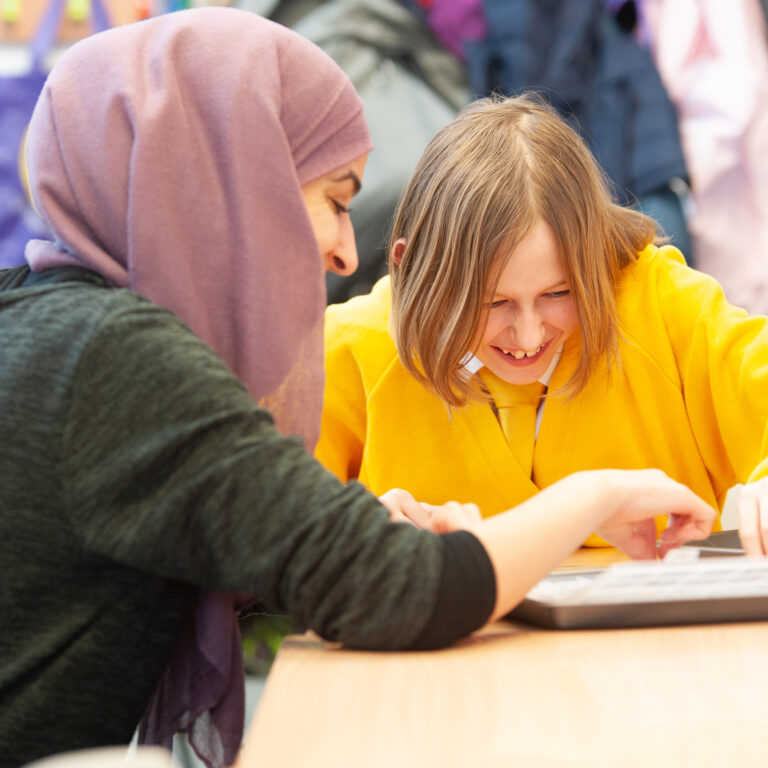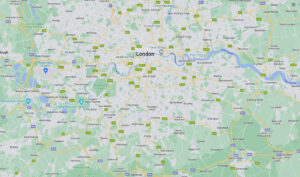At Abingdon House School, we use the Positive Behaviour Support (PBS) framework as one of many strategies to support our students. Jazmin Gahan, Pastoral Lead at our Senior School, explains how this person-centred, evidence-based approach focuses on improving the quality of life for individuals by helping them to build essential skills for navigating the world around them.
PBS aligns with our school ethos of inclusion, respect, and empowerment. It focuses on proactive strategies to support students before challenges arise, as opposed to relying on reactive measures. While much of our cohort are navigating the tricky time of adolescence, it can be too easy for their behaviour to be seen as a choice. We take a different tact, by consistently delivering the key message that all behaviour is communication. This promotes a deeper level of understanding and empathy towards our students, as we are consistently asking: what is this behaviour trying to tell us? We can then work collaboratively with students to increase their skills and confidence when navigating future scenarios.
PBS is widely recognised as an effective approach for supporting neurodivergent young people, recognised and utilised by organisations such as the National Autistic Society. The person-centred focus of the framework does not seek to punish behaviours that might not fit neurotypical expectations, and instead supports through compassion and a recognition of the unique needs and learning profiles of each student. At AHS, we also utilise aspects of PBS in a school-wide approach with a range of proactive strategies. This promotes an environment where students feel secure, understood and supported.
Those who are unfamiliar with PBS can struggle to see the wider-scale benefits of this framework, as there is a common myth that PBS is only about praise, positivity, and avoiding consequences when behaviour is challenging. This isn’t the case. Whilst positivity and praise are encouraged, it is still important for there are consequences for behaviours but they are always proportionate, meaningful, and focused on helping students learn from their actions. In life after school, there will always be ‘natural’ consequences for different behaviours and actions, and it is important for us to teach them about this in a safe and supportive environment. Our approach is constructional, focused on empowering students and increasing their repertoire of adaptive behaviours for a range of contexts and social situations.
Some of the key ways we implement this framework are:
- Clear rules and expectations: Every area of the school has its own set of clear, simple rules with visual guides to highlight expectations.
- Routine, structure and classroom environment: Clear routines help students feel secure. With regular form times and the use of visual timetables, students know what to expect throughout their day, reducing anxiety and promoting positive behaviour.
- Use of reward/behaviour system: When using the behaviour system, staff will focus on what the pupil needs to do to stay on the target, or specifically get back on target, if they have been taken off. For example, it will include the instruction: to get back on target, take a movement break if the behaviour is a result of dysregulation. Students are also motivated with credits for following the school rules that then correlates with Friday Reward Time.
- Building student-staff rapport: Positive relationships between staff and students are essential. When students feel they are valued and understood, they are more likely to engage positively with learning and school life.
- Encouraging communication between home and school: We strongly encourage communication/emails from home regarding any updates or changes. For example, family members being away, medication adjustments, changes from usual routine. Many may be surprised that something seemingly minor can impact the day at school. We can then inform staff ahead of time and make any necessary adjustments for the student.
Our multidisciplinary team sees the staff team across the school, including teachers, therapists and wider support staff, work collaboratively to implement various PBS elements throughout the curriculum.
One example is the Social Thinking framework, taught by our speech and language therapists in social skills lessons and used by all staff throughout the school day. It offers tools and strategies for supporting social communication, emotional self-regulation, and provides supportive frameworks for navigating restorative conversations amongst peers.
Another is the integrated use of So-Safe language, a specialised curriculum taught in PSHE to address touching and consent. This provides clear, accessible visual communication tools for learning about personal space, and appropriate ‘steps to relationship’ to ensure social safety for our older students. This framework supports our students to live the most fulfilled and independent lives as they can.
These examples are merely a snapshot of how we support our students and these strategies are by no means exclusive to a school setting. By incorporating proactive strategies at home and in students’ personal lives, it will help to set them up for further success. These approaches help to build up the tools students need to manage their own behaviour, understand their needs, and become independent, fulfilled young adults.


